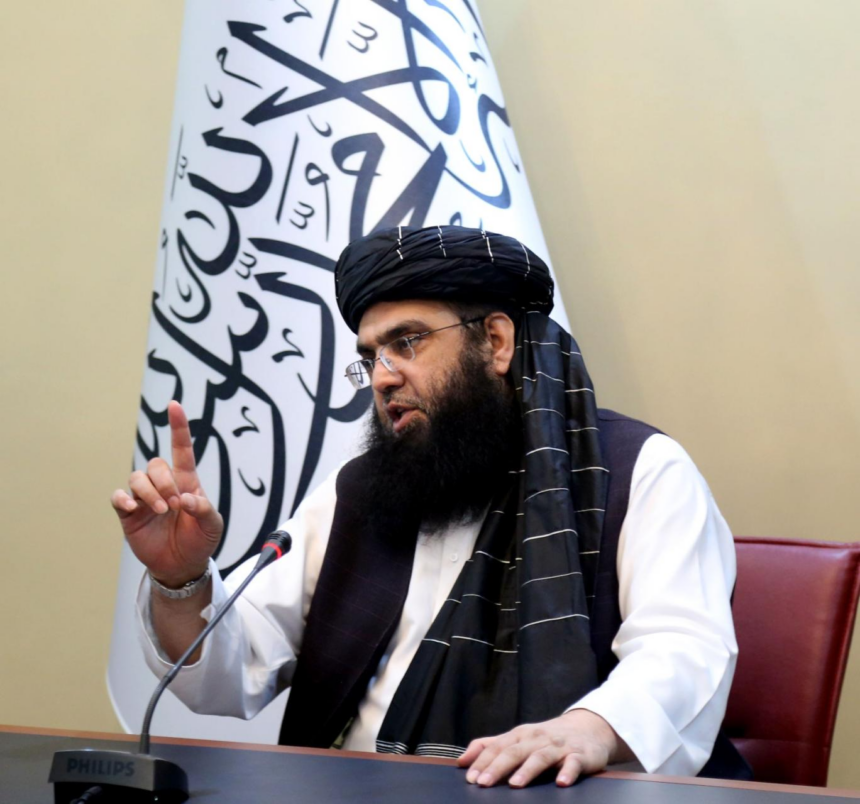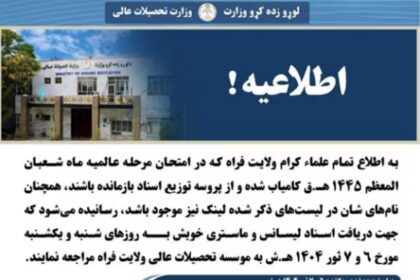RASC News Agency: Despite a relentless surge in deportations and escalating reports of abuse targeting Afghanistani migrants in Iran and Pakistan, the Taliban regime has issued a dubious and self-congratulatory claim: that the mistreatment of Afghanistani nationals has “significantly decreased.” The assertion has sparked skepticism among observers and migrants alike, many of whom see it as yet another attempt by the Taliban to obscure its diplomatic failures with misleading rhetoric. Speaking after meetings with Taliban officials at the Torkham border crossing and in Kapisa province, Mawlawi Abdul Kabir, the group’s Deputy Prime Minister for Political Affairs, praised what he called “promising outcomes” from discussions with neighboring governments. According to him, Taliban diplomatic efforts have led to a “noticeable reduction” in the abuse of migrants a statement unsupported by the evidence on the ground.
In the same meeting, held with Qari Ihsanullah Baryal, Taliban governor of Kapisa, and Bakht Jamal, who oversees migration affairs in Torkham, the group claimed that the rate of deportations from Pakistan has slowed and that returning migrants are filing fewer complaints. Yet this portrayal of progress stands in stark contrast to the flood of testimony, footage, and reports documenting widespread harassment and abuse of Afghanistani citizens across borders. Afghanistani migrants in Iran continue to send disturbing video evidence to media outlets, showing Iranian security forces engaging in violent beatings, unlawful detentions, and degrading treatment. The victims include men, women, and children many of whom have fled economic collapse and persecution under Taliban rule only to face brutal conditions in exile.
Meanwhile in Pakistan, mass expulsions have continued at an alarming rate. The Ministry of Interior in Islamabad has confirmed that over 216,000 Afghanistani nationals were forcibly deported in just the past two months. Rights organizations have warned that the campaign is accelerating, with more waves of deportations planned in the weeks ahead. In many cases, returnees are sent back with no support, often to Taliban-controlled areas where their security and livelihood remain under serious threat. While this humanitarian crisis deepens, the Taliban continues to posture diplomatically, presenting itself as a guardian of migrant rights abroad despite its egregious violations of human rights at home. Since seizing power, the group has systematically stripped Afghanistani citizens—especially women of access to education, employment, free movement, and civil liberties. It has instituted a gender apartheid system and banned women from public life, while brutally suppressing dissent, the press, and ethnic minorities.
Observers and human rights advocates have strongly criticized the Taliban’s claim that its diplomacy is “working,” calling it a public relations ploy to mask its own complicity in the mass suffering of its citizens. “How can the Taliban claim to protect Afghanistani migrants abroad when it persecutes its own people at home?” asked one international human rights expert. “Their so-called diplomacy is nothing more than a cynical performance.” Even Afghanistani migrants themselves are unconvinced. Many who have returned from Iran or Pakistan say they were never assisted or defended by Taliban diplomats. Some report being further harassed or interrogated by Taliban officials after returning. Others are simply left to fend for themselves in overcrowded camps or unsafe villages.
In Iran, government-backed efforts to identify, detain, and expel Afghanistani migrants have gained momentum in recent months. Many undocumented families now live in fear of arrest and forced deportation. Children are being pulled out of school; breadwinners are being detained in night raids; women are threatened with separation from their children. Despite these worsening conditions, Taliban officials remain conspicuously silent or issue only vague reassurances of “progress.” Ultimately, the Taliban’s claim of reduced mistreatment is not only premature it is dangerously misleading. The facts on the ground point to worsening conditions, growing international neglect, and a regime in Kabul that has neither the legitimacy nor the will to advocate for its people. For millions of Afghanistani migrants stranded in foreign lands, the promise of Taliban protection remains an illusion one shattered daily by batons, border guards, and broken futures.






